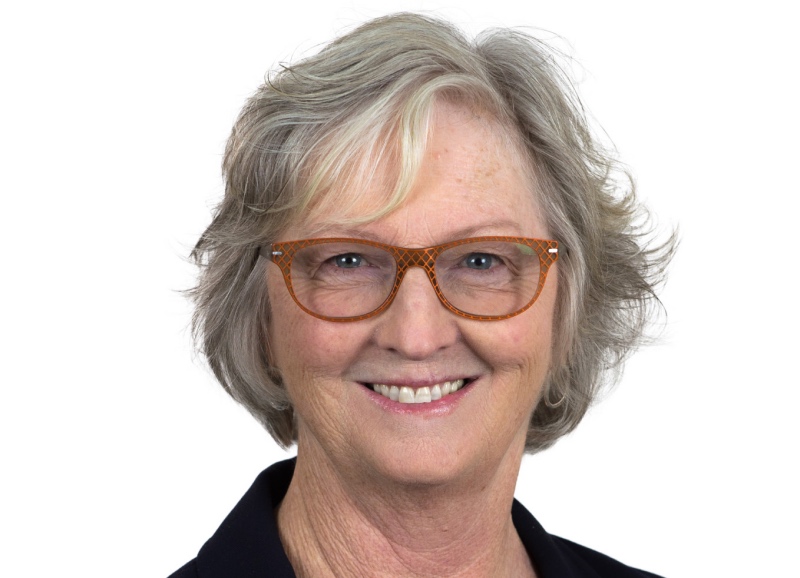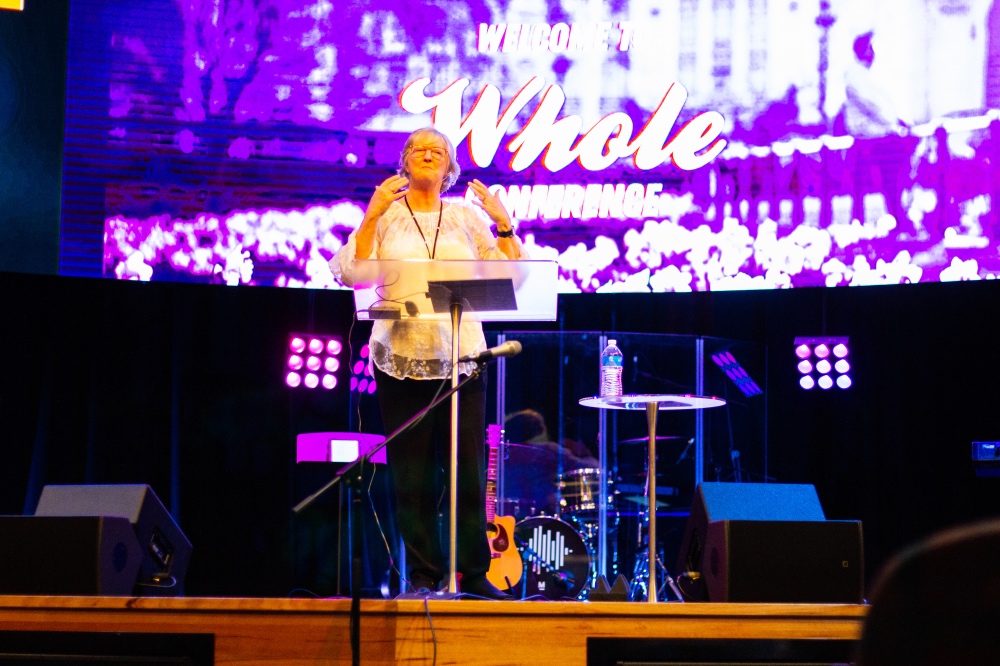
DAVID ADAMS speaks with Australian GP and pastoral care expert, Dr Carolyn Russell…
Dr Carolyn Russell is a pastoral care expert and GP based in the Australian city of Brisbane where she works in a community mental health and counselling centre. In a conversation with conducted via email, she speaks about the warning signs for burnout among pastoral carers, what to do when you see the signs and how to maintain good mental health…
Earlier this year you gave a presentation [at the Whole Conference, hosted by Korus Connect and Scripture Union Victoria, in Melbourne] focusing on looking after people working in pastoral care roles including clergy – do you have any data about the rates of burnout among people working in this sector?
“There is much literature, both older and more recent, about persons working in care of others in pastoral roles…Mental health resources suggest that up to 15 per cent of people will experience a depressive episode in their lives. [With] pastors [that’s] up to 25 per cent.”

Dr Carolyn Russell
IN SHORT – DR CAROLYN RUSSELL
A Bible verse that’s inspired me…”John 15:4 – ‘Abide in me, and I in you. As the branch cannot bear fruit by itself, unless it abides in the vine, neither can you, unless you abide in me’.”
A book that I’d recommend concerning looking after pastoral carers…”Working without Wilting: Starting Well to Finish Strong by Jago Wynne or None Like Him: 10 Ways God Is Different from Us (And Why That’s a Good Thing) by Jen Wilkin (more about who we are as Christians, not just pastoral carers).”
A favourite place to go when you need to get away…”In a kayak on a quiet and beautiful river or dam – we love Sunshine Coast and hinterland – with my husband paddling near me, a favourite book and a picnic (with perhaps some quilting/stitching to do once we are relaxed, and sitting in the sun later!).”
What are the warning signs for someone working in the sector who is burning out?
“There’s a good summary on Reachout.com [it includes losing motivation and feeling unable to concentrate]. The first issue [feeling exhausted and unable to perform basic tasks] is significant. People who are passionate become cynical, start to experience conflicts when they have not done so before [and] avoid relational tasks, for example, answering the telephone or responding to an important request. [They can also experience] disillusionment with systems and with leadership.”
What should colleagues or others do if they see these signs?
“Start connecting, and creating opportunities for conversation; being honest, and not judgemental. Recognise that all of us are prone to this in various cirucmstances. Let the person know that you are noticing change, and that you are willing to walk the next journey with them ’till they are restored to what is best for them.”
What are the keys to maintaining good mental health for those working in the sector?
“Start by really understanding the job, the expectations, reviewing them regularly with others, keeping connections with people – family and colleagues – not just working [together], but celebrating, and having fellowship, fun and rest, ensuring [you] worship together, dealing with changes in mood early. Not ‘soldiering on’.”
What about the organisations, including churches, that employ people working in the pastoral care field – are they generally good are looking after their pastoral carers?
“This varies. Larger institutions, which have been involved for long times, are slower to change with the times or to consider the processes necessary for surveillance of mental health, and to review the care of their people. Newer organisations may do better, however, sometimes they do not create the resilience needed, and pander too much to this current generation. There is a time to work hard, and to stretch ourselves, as well as to work outside our comfort zones, however we need to remain observant that none of us can continue this [in an ongoing way] without surveillance. As people in the Kingdom of God, He gives us good clear pictures of people doing His work – [it involves] walking with Jesus, yoked with Him, learning of His rhythm, and His ways of being part of the Body of Christ.”
What can they do better?
“Think about it early, prepare people as they train in theological college, or as [part of their] inductions. Have people available to pastor pastors, to think and pray together, to review workloads, and to ask honest questions about:
• past ways of managing stress (the way we have done it in the past will be the way we come to the next job!);
• providing supervision;
• relationships and effect of work on these;
• cynicism;
• feelings about the work; and,
• creating opportunities for celebration and encouragement as a body.”
Is the problem exacerbated due to the fact that many pastors work alone?
“Yes, however this is sometimes a personality style of the pastor and they choose to be too independent partly because they like it that way. We are needy people, who are meant to work connected to others, encouraged, and encouraging others, noticing our strengths and weaknesses, giving way to others with different gifts. [We are] interdependent. A whole body. Setting up for this picture, even in areas where people are the only pastoral carers, is essential. For example, create a supervision group between organisations, set up a buddy within the system. Doing regular retreats, or visits from their own pastoral carer or spiritual director, is important.”
You’ve said that our limitations as humans are a gift from God – what did you mean by that?
“It is essential that we have an anthropology that is Biblical – we are created, creatures with limits. We are not meant to be superhuman, but human. Not omnipotent, not omniscent. That means that we must accept that we have limits. It puts us in the correct place, seeking to honour and give glory to the One who made us, rather than forgetting who and what we are. It is in accepting this limitation (our weakness, as Paul speaks about in Corinthians) that He is seen in His glory, as people work in the way that we are meant to be. We are limited, but together showing the beauty and support and connection of the Body of Christ.

Carolyn Russell speaking at the recent Whole Conference in Melbourne. PICTURE: Isaac Swinerton
How did you come to be working in the field?
“I have always been a preventive doctor, being interested in this from medical school onwards. My family were believers, and caring for our pastor was something that they wanted to do, even in the early days of my life. We as a family had fun with our ministers, and encouraged them in our home, and we in theirs. This was a part of the way our church was. As a result, when I became a doctor interested in mental healthcare and prevention, I started to see people who were burning out and stressed in their work as pastors. I was referred them as I was a Christian, and interested in integrating my faith and work as a doctor.
“Over the years, I saw more and more people working as if they were omnipotent and omnipresent and omniscient, and had a sense from God as I thought and prayed about my work that this was an area to be involved in – encouraging people to embrace being human in the service of our great God rather than wearing out because they tried too hard to be God! The teaching has come later, as I learned more, and wanted to help systems to develop programs which were preventive, especially by getting the Biblical processes of Sabbath and fellowship and body life deeper and richer through training.”
If someone were considering becoming a pastoral carer in a Christian context, what advice would you give them?
“Be curious! Check out the thinking, the beliefs and the processes of the organisation that they are considering working in. Check out how frequently people resign, or struggle. Check out what supervision and group connections are encouraged, even if it is supplied by someone outside of the organisation. Be connected within your own church family, and ensure that your organisation does not have superhuman requirements all the time. Have a doctor that you can relate well to and see them regularly to check on your mental health, especially around mood and anxiety. Watch for the subtle signs – avoidance – especially avoiding the phone, cynicism, irritability, sleep problems and thinking about the job all the time.”
This interview has been edited for length and clarity.





